 Gabriel Iglesias talks about “The Fluffy Movie”, his life and cake
Gabriel Iglesias talks about “The Fluffy Movie”, his life and cake
By Jeff Mitchell
Stand-up comedian extraordinaire Gabriel Iglesias flew into Phoenix to promote his new concert film, “The Fluffy Movie”. The Phoenix Film Society, along with some other film critics, enjoyed a warm conversation with the man to discuss his new stand-up concert movie, his start in the comedy business, his favorite on-stage character, and his favorite type of cake! “The Fluffy Movie” opens in theaters on July 25.
Q: What is your favorite memory of making this movie?
GI: The opening segment. There’s a little vignette at the beginning that tells a story about how my mom and dad met, how I came to be “The Fluffy Kid” and what inspired my dream of becoming a comic. That was very important for me. If I chance to do a movie, I was going to tell that story up front and make it as authentic as I could.
Q: We all know you love cake, so what is your favorite type of cake?
GI: I’m so tired of chocolate cake. I’m so burned out from that. I’m doing a routine right now where I’m facing the repercussions of my comedy, and I’m realizing things I talked about in the past are starting to haunt me really bad now. Cake being one of them, because I’m Type 2 diabetic.
Now, I have to be careful with sugar, but people still bring me a ton of cake because of one joke I did in 1998. Imagine it’s been your birthday every single day since 1998, and you have three friends. All three of those friends give you chocolate cake. I get between 20 and 40 cakes every week, and people wonder why I’m diabetic. It’s a lot of cake. Everywhere I go, there’s cake. People tell me I should have asked for cash.
Q: Or Transformers, right?
GI: Again, that’s part of the whole thing. I said my son loves Transformers. I go on tour, and I get over 350 Transformers toys to give to my son. We had a tour bus, and the whole bay in the back was just filled with all of these Transformers toys. When I got home during Christmas, we just stuffed them all in the closet. My son opens the door and freaks out when he sees all these toys. I let him keep 15, and the rest we donated to an orphanage called, Hillside.
Oh, my favorite cake? I have to say, key lime pie. It is not exactly a cake. If I had to pick a cake, I’d go cheesecake.
Q: What is your favorite joke?
GI: The first joke I’ve ever told on stage. I was 10.
I went up on stage, and said, “Why did the chicken cross the road? To check out the chicks.”
I was a genius at 10. Try telling that at 21, and you look hacky and stupid. That was the only joke I’ve ever told. Everything since has been character voices, doing impressions or just telling stories.
Also, I did a school talent show, and the crowd was just into it.
Afterwards, everybody was coming up to me, and I thought, “I like this attention!”
It was positive. Everybody was happy. Everyone wanted to put their arms around me. It was just an incredible feeling. There’s no job that can compare. It was a nice warm feeling, and you can’t wait to go back up on stage.
Q: I understand - before comedy - you had a job at a phone company. Was it an easy decision to take a chance at comedy or was it difficult because you are giving up your financial security?
GI: I was 19 or 20 years-old, and I was working for a company called LA Cellular, and eventually, they became AT&T. I was selling phones in a store called Home Base, which later became Lowe’s. I was being paid very well. I was single. I had no kids and no responsibilities. I was probably pulling in about $5,000 / month plus benefits. My mom was very happy, and then I tried comedy. Next thing you know, I was doing comedy at night, working during the day and sleeping very little in the middle. I was burning the candle at both ends, and I was calling in sick a lot. I was using up all my vacation time to do stand-up, and eventually, it all ran out.
So, I made a choice. Do I slow down with the comedy, or do I give up the security? I gave it up. I figured I saved up enough money, and all I needed - in my head - was $600/month. So, I felt I was covered for a while. I ran through it (the money) so quick. I got evicted from my apartment. I wound up sleeping on my brother’s balcony for a summer. My sister found out I was sleeping on my brother’s balcony, so she asked me to move in with her.
I rode her couch for a about a year until I finally started making enough money to contribute. Eventually, it just clicked, and then Boom! I started paying the rent. I moved out and got myself a place in Burbank. Comedy Central gave me my first special. I bought a Hummer before I bought a house, and then I bought a house. Every year, everything doubled. The work was doubling. The money was doubling. The popularity was doubling, and it just kept going and going, and now, here we are!
Q: Since you’ve done voice-over acting and film acting, which one do you prefer?
GI: Voice acting, all day! Honestly, I really don’t like acting. I don’t enjoy it. What I do like is going to a movie theatre and seeing my face on a poster. I like seeing my name on a poster. That is cool. When I did “Haunted House 2”, I went with my kid to the movies.
I stopped by the poster and said, “Mmm...I wonder who is on that poster?”
That’s the cool part. The working? Showing up on the set at 6:00am and memorizing the script. They change it on you at the last second, and then the director yells at you. Other times, the set can be great! In “Haunted House 2” with Marlon Wayans, we shot the film in four weeks. That was a very fast shoot, and I liked that. That was cool. Plus, Marlon allowed me to be creative and have fun with it. Other movies? Not so much.
Voice-over films? I can knock out a whole voice-over movie in one day. One day! You walk in, they hand you a script, and you don’t have to memorize anything.
They might say, “Would you like an omelet?”
Everybody is really nice. The director is right there, and every other word out of his mouth is “Great! Gimme some more of this! That’s what I’m saying! Wonderful!”
So, you’re happy. I love voice-over work.
Q: What’s your advice to someone who wants to a comedian and doesn’t think it is feasible?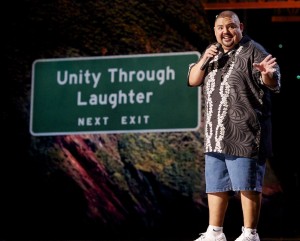
GI: Anything is possible as long as you’re focused, determined and you really want to do it. With comedy, there are a lot of people who say they “want it.”
I have these conversations with guys, and they say, “Oh, I want to be a comic more than anything!”
I tell them, “I’m never home. I miss birthdays. I miss holidays. I miss anniversaries. I miss special moments. I’m not always there for important times, because I’m out on the road trying to make people laugh. I give up my privacy. I give up the ability to walk somewhere and relax.”
You know what? That’s what I signed up for. There are more pros than cons, and obviously, financially, it’s an amazing thing. I don’t worry about bills, but then again, Uncle Sam gets me a lot harder than he gets most people. I have very nice cars. I never get to drive them, because I’m never home. I see a lot of nice hotels, but I never really get to enjoy the cities, because I have to be on a plane the next day. I eat a lot of junk food, because that’s what’s usually available at 1:00am when I’m all done working.
I’m talking to these guys, and I go, “Listen, if you really want to do it Man, you’ve just got to be prepared to give everything up. Your goal should be, I just want to make people laugh. If you are ok just doing that, then I say, go for it!”
Q: You have so many characters in your standup. Do you have a favorite you like to portray?
GI: The Girl Voice. Anytime I do the Girl Voice, it always throws people off. They don’t expect this 300 lb. Mexican guy to go, “Oh my God!!”
It catches people so off-guard. It’s awesome.
Q: Where is your favorite place to perform outside the U.S.?
GI: Australia. I love Australia. First of all, everyone is so nice. The people are down to Earth, and they like having fun with you. Their sense of humor is so twisted, and they love it when you push the envelope. One of the craziest compliments came from a guy in Australia.
He said, “You are the funniest bloody c**t I’ve ever seen.”
That is actually a compliment over there.
The promoter said, “Yea, it don’t get better than that!”
I’m like, “Ok. Alright. He could have just said you’re funny, but no.”
The food is amazing, and the people are amazing. The way of life is very relaxed and chill. They come out in droves. I do arenas in Australia. Love Australia, and Oslo, Norway was amazing. Who would have thought? A Mexican in Norway.
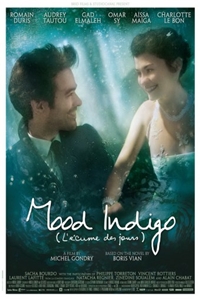 Mood Indigo
Mood Indigo

 Magic in the Moonlight
Magic in the Moonlight
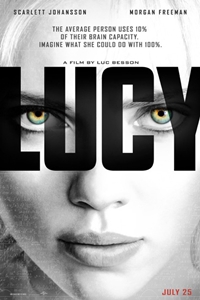 Lucy
Lucy
 I Origins
I Origins
 Gabriel Iglesias talks about “The Fluffy Movie”, his life and cake
Gabriel Iglesias talks about “The Fluffy Movie”, his life and cake

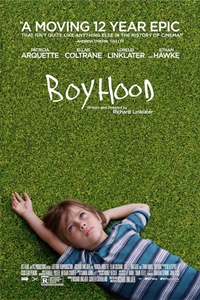 Boyhood
Boyhood
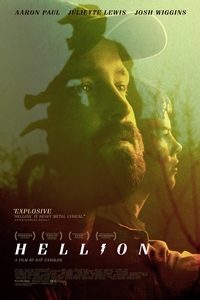 Hellion
Hellion
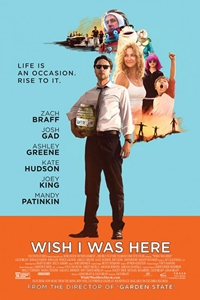 Wish I Was Here
Wish I Was Here
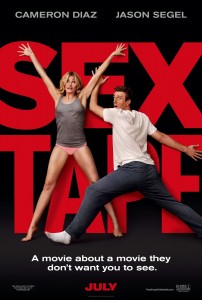 Sex Tape
Sex Tape
 The Purge: Anarchy
The Purge: Anarchy
 Dawn of the Planet of the Apes
Dawn of the Planet of the Apes
 Begin Again
Begin Again
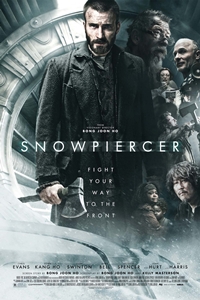 Snowpiercer
Snowpiercer
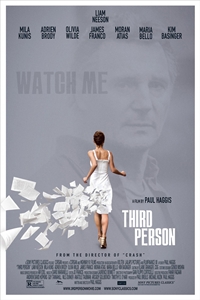 Third Person
Third Person
 Tammy
Tammy
 Earth to Echo
Earth to Echo
 Deliver Us From Evil
Deliver Us From Evil








